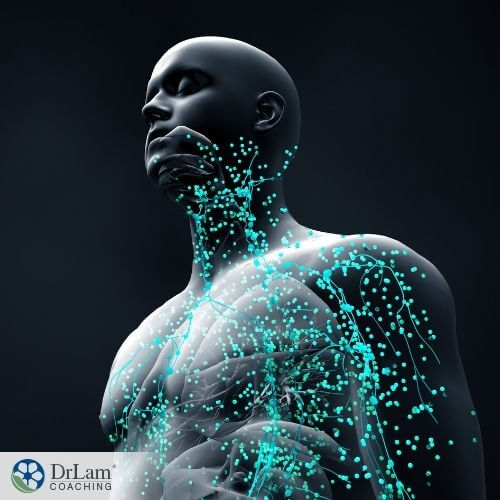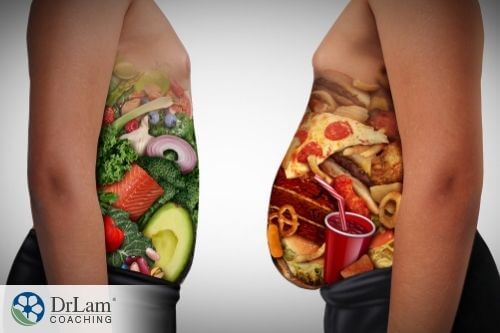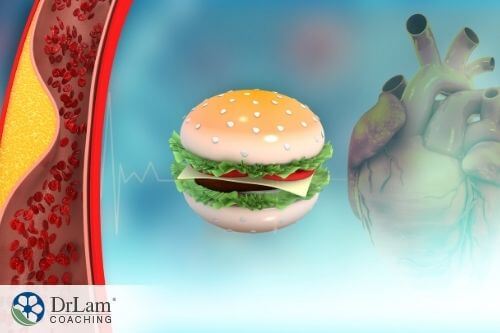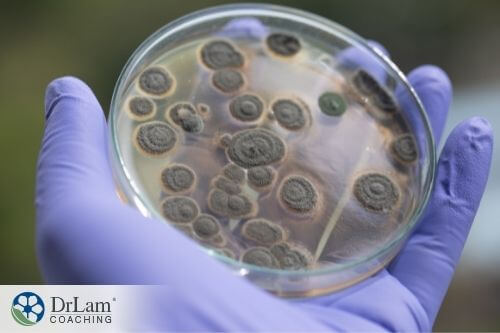 Phosphatidyl choline is a compound that is present in all of the cells of your body, and you can readily get it from food. It is especially well known for its ability to help protect the lining of the gut in people with IBD and ulcerative colitis, and it may also help your brain and metabolism. However, there are many other phosphatidyl choline benefits, as new research shows. One newly discovered benefit is its ability to reduce cholesterol and improve heart health. Here's how it works.
Phosphatidyl choline is a compound that is present in all of the cells of your body, and you can readily get it from food. It is especially well known for its ability to help protect the lining of the gut in people with IBD and ulcerative colitis, and it may also help your brain and metabolism. However, there are many other phosphatidyl choline benefits, as new research shows. One newly discovered benefit is its ability to reduce cholesterol and improve heart health. Here's how it works.
Phosphatidyl choline is a type of phospholipid that has a choline molecule attached to it. A phospholipid is a lipid, or a fatty acid, that contains phosphorous, which in this case is lecithin. Phospholipids are vital for the creation of your cell membranes. Choline is an essential nutrient that can supply the methyl groups your metabolism needs to function. Combined, phosphatidyl choline benefits many of your body’s systems, including your cardiovascular system.
You can get phosphatidyl choline from food, including nuts, soybeans, sunflower, eggs, whole grains, and red meat. You can also get it as a supplement.
Your body uses phosphatidyl choline to make acetylcholine. This is a neurotransmitter involved in your metabolism, movement, and cognitive functions. So not getting enough of it from your diet or supplements can create problems in those areas.
One of the less talked about phosphatidyl choline benefits is its ability to help reduce fat deposits in your arteries. However, using phosphatidyl choline for this purpose can have pitfalls, because some of the dietary sources of this nutrient can also be risk factors for cardiovascular disease. For example, too much red meat or eggs cooked in saturated fat can raise unhealthy cholesterol levels and lead to atherosclerosis.
So, let’s start with the basics: how cholesterol and saturated and unsaturated fat affect your heart.
Currently, there’s some debate about whether cholesterol is good or bad, and whether a high-fat diet is better for you than not. And though nutrition science has come a long way, the one thing that’s still quite lacking is nuance.
The type of food you eat and the supplements you take should depend on YOU. Your unique condition and needs. Some healthcare professionals go so far as to say there’s a perfect diet for your specific genetic makeup. We also wholeheartedly believe in the individualized approach to medicine and health. There is no one-size-fits-all diet or health regimen.
Because of some very specific phosphatidyl choline benefits, we sometimes recommend this or a specific derivative as a supplement to our clients. This derivative, which is a purified form of phosphatidyl choline called "essential phospholipids," has a very high content of polyunsaturated fatty acids – one of the “good” types of fat.
 Lipids, or fats, are crucial for the formation of your cell membranes. They don’t dissolve in water, so they can create that separation between the outside and inside of a cell, both of which contain water. In order for your body to create these membranes, it needs to get the raw materials from your diet.
Lipids, or fats, are crucial for the formation of your cell membranes. They don’t dissolve in water, so they can create that separation between the outside and inside of a cell, both of which contain water. In order for your body to create these membranes, it needs to get the raw materials from your diet.
There are four main types of dietary fat, some healthy, some not so much:
For simplicity’s sake, we’ll group the above into two categories: unsaturated and saturated fats. Saturated fats are the type that becomes a problem when you have cardiovascular risk and unhealthy cholesterol levels.
Cholesterol has gotten a bad reputation, but actually, it’s a very important fat-like substance that your body uses for very important functions. It has a waxy consistency and travels to different areas of your body through your blood. Your body, or more specifically your liver, can make this type of fat. You can also get it from animal-based foods.
It has vital roles in health. Along with phospholipids, it is one of the substances used to make cell membranes. It’s also one of the raw materials used to make certain hormones, including cortisol, your body’s main anti-stress hormone and the one involved in Adrenal Fatigue Syndrome (AFS). Your body also needs cholesterol to synthesize vitamin D, and your liver needs it to make bile, which helps with digestion.
 The link between cortisol and cholesterol goes deeper than that, however. AFS is a condition that comes about when your body faces chronic stress, which can be physical or emotional. Your adrenals have to overwork to produce stress hormones, like cortisol, to meet the growing demand. But after a while, they weaken and their cortisol output drops.
The link between cortisol and cholesterol goes deeper than that, however. AFS is a condition that comes about when your body faces chronic stress, which can be physical or emotional. Your adrenals have to overwork to produce stress hormones, like cortisol, to meet the growing demand. But after a while, they weaken and their cortisol output drops.
This marks AFS and can result in fatigue, weight gain, brain fog, anxiety, mild depression, hair loss, dry skin, loss of libido, PMS, infertility, hypoglycemia, lowered immunity, food and drug sensitivities, salt and sugar cravings, blood pressures instability, and elevated cholesterol levels.
Aside from your adrenals, your body also relies on the NeuroEndoMetabolic (NEM) Stress Response to handle stress. It consists of six circuits, composed of different organs and systems that work together to fight stress. Your adrenals are part of two circuits: the Hormone and the Cardionomic circuits. The other four are the Bioenergetics, Neuroaffect, Inflammation, and Detoxification circuits.
Your Cardionomic circuit is made up of your cardiovascular system, adrenal glands, and autonomic nervous system (ANS). It’s the circuit that is responsible for getting your heart, lungs, and blood vessels more oxygenated blood so you can be better prepared to deal with a stressor. This happens through the signaling of adrenaline and norepinephrine, two major stress hormones. Their release is modulated by your ANS.
Like the adrenal glands, the components and circuits of the NEM are at risk of dysregulation in the face of chronic stress. That includes the Cardionomic circuit. If your Cardionomic circuit dysregulates, you can get heart palpitations, elevated blood pressure, shortness of breath, cardiac arrhythmia, atrial fibrillation, and POTS-like symptoms. These symptoms can either be aggravated or ameliorated by your cholesterol profile.
The reason cholesterol levels rise with stress is because your adrenals need to make more cortisol from it. That’s also why AFS patients may end up with a concentration of fat around the middle - so that the stores of cholesterol are closer to the adrenal glands, which sit atop the kidneys. And just like chronic stress can result in higher cholesterol, high cholesterol levels can be a chronic stressor on your body and your adrenals.
But here’s the catch. Not all types of cholesterol are bad for you. In fact, one type is good for you and helps keep the other type in check. It’s also not the cholesterol per se that is either good or bad, but the medium that carries it in your blood. That medium is lipoprotein, and there is high-density lipoprotein (HDL), low-density lipoprotein (LDL), and very-low-density lipoprotein (VLDL).
VLDL carries triglycerides, which are lipids derived from food, in the blood. If you eat too many calories or consume too much sugar or alcohol, your body will turn those into triglycerides to be stored in fat cells. High triglyceride levels are one of the risk factors of heart disease. They should be kept under 150. 150-200 is considered borderline, and anything above is considered high.
 LDL is what’s generally labeled as the “bad cholesterol.” The reason for this is that this is the type that can form plaque inside your arteries and either narrow them or block them completely. This condition is called atherosclerosis, and it is a major risk factor for heart disease. You should aim to keep your LDL less than 100 mg/dL. If you have another of the risk factors of heart disease, like diabetes, then aim for less than 70 mg/dL.
LDL is what’s generally labeled as the “bad cholesterol.” The reason for this is that this is the type that can form plaque inside your arteries and either narrow them or block them completely. This condition is called atherosclerosis, and it is a major risk factor for heart disease. You should aim to keep your LDL less than 100 mg/dL. If you have another of the risk factors of heart disease, like diabetes, then aim for less than 70 mg/dL.
HDL is the one that’s considered the “good cholesterol” because it carries LDL away from the arteries, reducing atherosclerosis and heart disease risk. Generally, HDL levels should be above 40 mg/dL. Likewise, 60 mg/dL and above is optimal. This is where essential phospholipids, the derivative of phosphatidyl choline, can come in handy.
Managing your cholesterol means increasing your HDL and decreasing your LDL. LDL carries saturated and trans fats to your arteries. So one way to decrease its levels is to limit saturated fats and eliminate trans fats from your diet. Another way to do that is to increase HDL levels so that it can carry away the LDL.
That’s one where one of the most interesting and useful phosphatidyl choline benefits for cholesterol comes in. However, to avoid some of the dietary sources of phosphatidyl choline that also increase cholesterol, in studies these benefits were mostly derived from intravenous purified essential phospholipids.
Remember, dietary phosphatidyl choline comes from different sources, some of which can increase HDL, while some don’t. For example, soybeans are very good for heart health, but beware of GMO soybeans. If you already have some heart disease markers, you wouldn’t want to increase your red meat intake just to get this nutrient.
Another way to get phosphatidyl choline benefits, without increasing heart disease risk factors, is to use the purified essential phospholipids. Intravenously, they appeared to increase the ability of HDL to uptake LDL from the blood and tissues, reducing its likelihood of ending up as plaque in the arteries.
Some animal studies showed that essential phospholipids can reverse atherosclerosis. In humans, their long-term use resulted in the improvement of atherosclerosis symptoms. They may also help reduce the plaques already formed, though this needs more research. Other animal studies showed that they can help reduce VLDL and triglyceride levels.
Essential phospholipids enhance the activity of certain enzymes involved in lipid metabolism, such as:
What these enzymes do is transform cholesterol and fats into a form that can then be carried out of the system in some way.
For example, cholesterol esterification via the LCAT enzyme turns cholesterol into "esterified cholesterol." Esterified cholesterol is more easily transported by HDL. HDL then carries it away from the tissues, including arteries, to the liver for breaking down and removal through bile.
LPL and HTGL help in the breaking down of chylomicrons, which are ultra low-density lipoproteins, and VLDL. These lipoproteins are the ones that carry triglycerides, so when they are broken down, it decreases your serum triglyceride levels.
 Another interesting phosphatidyl choline mechanism is how it can protect against the effects of mold exposure and mycotoxins. Mycotoxins from mold can cause chronic inflammation, which can then compromise the phospholipid bilayer of cell membranes. This can then leave your cells, including nerve cells, more vulnerable to damage. That's why you can get neuropsychiatric symptoms with mold illness.
Another interesting phosphatidyl choline mechanism is how it can protect against the effects of mold exposure and mycotoxins. Mycotoxins from mold can cause chronic inflammation, which can then compromise the phospholipid bilayer of cell membranes. This can then leave your cells, including nerve cells, more vulnerable to damage. That's why you can get neuropsychiatric symptoms with mold illness.
Supplementing with essential phospholipids can help rebuild these membranes. And because these substances play an important role in bile formation and liver detoxification, they can also participate in the detoxification of mold toxins as well as other toxins. Chronic inflammation also affects your cardiovascular system and Cardionomic circuit, along with all your other physical functions.
If you have Cardionomic circuit dysregulation, AFS, metabolic dysfunction, diabetes, or other risk factors for cardiovascular disease, supplementing with essential phospholipids may be the most useful way to get phosphatidyl choline benefits without the risks. But there are several caveats to consider here.
First of all, we want to highlight, once again, the importance of an individualized approach. Cardionomic circuit dysregulation, elevated cholesterol levels, and even metabolic issues may be a result of chronic stress. In which case, complete adrenal fatigue recovery may need to be a higher priority than just taking these supplements. They could be part of the overall recovery plan, but they should not be central.
Secondly, if you have AFS or NEM problems, then your body may react differently to supplements than another persons' body. You may end up with a paradoxical reaction and get even worse cholesterol ratios. Or they may lead to an adrenal crash. This is why the "start low and go slow" approach is important with AFS, and you should always talk to your doctor about changes you are planning to make.
Finally, without changing your diet and lifestyle, there’s not much a supplement can do, no matter how beneficial or targeted it is. If you’re going to eat a diet rich in trans fats, no amount of essential phospholipid supplementation, no matter how purified and concentrated, will offset that. So, as with pretty much all other chronic conditions, you need to build a strong foundation first before you experiment with new therapies.
Phosphatidyl choline is an important substance your body uses to create cell membranes. It’s also vital for your brain function, heart function, metabolism, and movement. But it’s not always a good idea to increase its dietary consumption. Sometimes a better way is through supplementation, although that also depends on your current health needs and the method of supplementation you choose. The bottom line is that it works best to create an individualized health plan with a healthcare professional that understands your condition and needs.
If you have Cardionomic circuit dysregulation or heart disease risk, then a purified form might be useful for you. But you’ll still need to be careful, especially if you have AFS. If you have questions about its benefits or uses, we can offer a free initial consultation at +1 (626) 571-1234 with one of our coaches. We will go through your unique situation and needs to see what approach is best for you.
Phosphatidyl choline benefits include helping with metabolism, movement, and brain function. In some supplement forms, it can also be very helpful for those with higher heart disease risk. Intravenously, one of its derivatives can increase your good cholesterol and reduce the bad type. But it may not be good for everyone.
